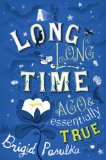Summary | Excerpt | Reading Guide | Reviews | Beyond the book | Read-Alikes | Genres & Themes | Author Bio

A Novel
by Nathan EnglanderEnglander's relatively short but
immensely powerful first novel is set in 1976 at the
start of the Dirty War, a 7-year campaign by the
Argentine military government against suspected
subversives. Kaddish (named for
the Jewish prayer of mourning) always has a new scheme for making money. He
earns his latest erratic source of income by
breaking into a walled off cemetery at dead of night
in order to chisel the names of Jewish whores and
pimps off their gravestones, so that their respectable second
generation children can erase their own pasts.
This is the same past that Kaddish, the son of an
immigrant whore, proudly embraces, which
makes him an effective untouchable to the Jewish
community as a whole. Meanwhile, his wife, stoical and
reliable Lillian, brings home a paycheck from the
insurance agency where she's busily employed
insuring the lives of the newly rich higher-ups in
the military regime.
When their naively idealistic,
but probably politically harmless son, Pato, is
taken from their own home, the parents experience a
defacement as efficient as Kaddish's chisel - Pato
has simply ceased to exist.
The Ministry of Special Cases is a powerful
and poignant novel that probes the depths of
identity and loss, and how societies and individuals
contribute to their own undoing. To tell you any
more would be to tell you too much. Be cautious
reading other reviews of The Ministry of Special
Cases because many give away too much of the
plot; and, however tempting it might be, don't skip
ahead to see the outcome. Instead, step into the
unknown alongside the comically-tragic Kaddish and
his wife as they helplessly attempt to navigate the
terrifying Kafkaesque world of 1970s Buenos Aires,
in which their son has been "disappeared", his very
existence, past or present, denied by the military
regime.
Nathan Englander was brought up as an
Orthodox Jew, educated at a yeshiva in suburban Long
Island, and now lives in New York. His favorite
reading are Russian novelists such as Gogol,
Dostoevsky and Chekhov; also Kafka and Camus. It
took him eight years to write The Ministry of
Special Cases following the publication of his
bestselling short stories,
For the Relief of Unbearable Urges, which he
wrote while living in Israel.
When asked to what extent religion influences his
writing he replies, "I don't think I could introduce
myself to a stranger, or even see my oldest friend,
and make it ten seconds without saying that I'm
Jewish, or referencing it in some way. That's me.
But I don't consider myself a Jewish writer, and I
definitely do not look at [The Ministry of
Special Cases] as Jewish .... it is the very
least equally as much about being Argentine as it is
about being Jewish – is anyone, anywhere, ever going
to call me an Argentine writer?"
Read more from this interview.
Interesting Link:
Essay: Nathan Englander returns to Buenos Aires, the place he's been imagining for a decade.
![]() This review was originally published in The BookBrowse Review in May 2007, and has been updated for the
April 2008 edition.
Click here to go to this issue.
This review was originally published in The BookBrowse Review in May 2007, and has been updated for the
April 2008 edition.
Click here to go to this issue.

If you liked The Ministry of Special Cases, try these:

by Daniel Loedel
Published 2022
A decade after fleeing for his life, a man is pulled back to Argentina by an undying love.

A Long, Long Time Ago and Essentially True
by Brigid Pasulka
Published 2010
Whimsical, wise, beautiful, magical, and sometimes even heartbreaking, A Long, Long Time Ago and Essentially True weaves together two remarkable stories, reimagining half a century of Polish history through the legacy of one unforgettable love affair.
I write to add to the beauty that now belongs to me
Click Here to find out who said this, as well as discovering other famous literary quotes!
Your guide toexceptional books
BookBrowse seeks out and recommends the best in contemporary fiction and nonfiction—books that not only engage and entertain but also deepen our understanding of ourselves and the world around us.